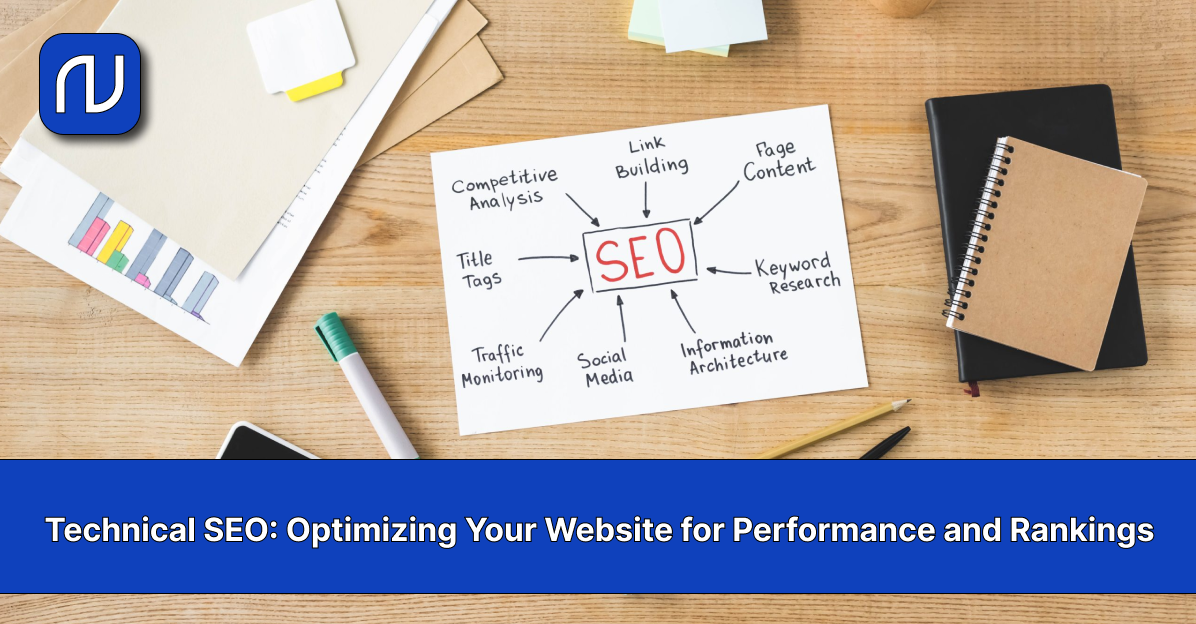Table of Contents
- What Is SEO in the Age of AI?
- Why Is AI Important for SEO?
- How AI Impacts SEO
- How to Adapt Your SEO Strategy in the Age of AI
- AI Tools for SEO
- How to Monitor Your AI-Driven SEO Results
- Start Implementing AI in Your SEO Strategy
What Is SEO in the Age of AI?
Search Engine Optimization (SEO) has always been about optimizing your website to rank higher in search engine results, thereby increasing organic traffic. In the age of Artificial Intelligence (AI), SEO is evolving to incorporate advanced technologies that enhance how websites are optimized and how search engines interpret and rank content.
AI-driven SEO leverages machine learning algorithms, natural language processing (NLP), and data analytics to understand user intent, predict search trends, and automate various aspects of SEO. This integration allows for more personalized and efficient optimization strategies, making SEO more dynamic and data-driven than ever before.
Example:
AI can analyze vast amounts of data to identify which keywords are trending in real-time, allowing businesses to quickly adapt their content strategies to capitalize on emerging opportunities.
Why Is AI Important for SEO?
AI is transforming SEO in several significant ways:
- Enhanced Data Analysis: AI can process and analyze large datasets much faster than humans, uncovering patterns and insights that inform SEO strategies.
- Personalization: AI enables more personalized search experiences by understanding user behavior and preferences, leading to higher engagement and conversion rates.
- Automation: Routine SEO tasks such as keyword research, content optimization, and performance monitoring can be automated, saving time and resources.
- Improved User Experience: AI helps in optimizing website usability by analyzing user interactions and suggesting improvements to enhance the overall user experience.
- Predictive Capabilities: AI can forecast future search trends and user behaviors, allowing businesses to stay ahead of the competition by proactively adjusting their SEO strategies.
How AI Impacts SEO
AI impacts SEO in various ways, reshaping traditional practices and introducing new methodologies:
1. Search Algorithms
Modern search engines like Google use AI to understand and rank content. Google’s BERT and RankBrain are examples of AI algorithms that interpret the context and intent behind search queries, improving the relevance of search results.
2. Content Creation and Optimization
AI tools can generate content ideas, optimize existing content for SEO, and even create content drafts. These tools analyze top-performing content to suggest improvements in structure, keyword usage, and readability.
3. Voice Search Optimization
With the rise of voice-activated assistants like Siri and Alexa, AI plays a crucial role in understanding and processing natural language queries, making voice search optimization an essential aspect of modern SEO.
4. Visual Search
AI-powered visual search allows users to search using images instead of text. Optimizing for visual search involves ensuring images are high-quality, properly tagged, and relevant to the content.
5. User Intent and Behavior Analysis
AI analyzes user behavior data to understand search intent, helping businesses create content that better matches what users are looking for, thereby improving rankings and engagement.
How to Adapt Your SEO Strategy in the Age of AI
Adapting your SEO strategy to leverage AI involves several key steps:
1. Embrace Data-Driven Decision Making
Use AI tools to gather and analyze data about your website’s performance, user behavior, and market trends. This data-driven approach helps in making informed decisions that enhance your SEO efforts.
2. Focus on User Intent
Create content that aligns with the intent behind user searches. Use AI to analyze search queries and understand what users are looking for, ensuring your content provides the answers they need.
3. Optimize for Voice and Visual Search
Adapt your SEO strategy to include optimization for voice and visual search. This includes using natural language in your content, optimizing for featured snippets, and ensuring your images are search-friendly.
4. Leverage AI for Content Creation and Optimization
Utilize AI-powered content tools to generate ideas, optimize existing content, and maintain a consistent publishing schedule. These tools can help enhance the quality and relevance of your content.
5. Automate Routine SEO Tasks
Implement AI tools to automate repetitive SEO tasks such as keyword research, performance tracking, and reporting. This allows you to focus on more strategic aspects of your SEO strategy.
AI Tools for SEO
Several AI-powered tools can enhance your SEO efforts:
1. SEMrush’s AI Content Assistant
This tool helps generate content ideas, optimize content for SEO, and ensure it aligns with user intent. It analyzes top-performing content and provides suggestions to improve your own.
2. Ahrefs’ AI Keyword Explorer
Ahrefs uses AI to identify high-potential keywords, analyze competition, and provide insights into keyword trends, helping you prioritize your SEO efforts effectively.
3. Moz’s AI Link Explorer
Moz leverages AI to analyze backlink profiles, identify high-quality link opportunities, and monitor your site’s authority, aiding in effective link-building strategies.
4. Surfer SEO
Surfer SEO uses AI to analyze content structure, keyword usage, and on-page elements, providing actionable recommendations to optimize your pages for better rankings.
5. Google Analytics with AI Insights
Google Analytics incorporates AI to offer predictive insights, anomaly detection, and automated reporting, helping you understand your website’s performance and make data-driven decisions.
How to Monitor Your AI-Driven SEO Results
Monitoring the effectiveness of your AI-driven SEO strategies is crucial for ongoing success. Here’s how to do it:
1. Track Key Performance Indicators (KPIs)
Identify and monitor KPIs such as organic traffic, keyword rankings, conversion rates, bounce rates, and dwell time to measure the impact of your SEO efforts.
2. Use AI-Powered Analytics Tools
Leverage tools like Google Analytics, SEMrush, and Ahrefs that incorporate AI to provide deeper insights into your SEO performance and user behavior.
3. Regularly Audit Your SEO Strategy
Conduct regular SEO audits to identify areas of improvement. Use AI tools to automate parts of the audit process, ensuring a comprehensive evaluation of your website’s SEO health.
4. Analyze Competitor Performance
Use AI tools to monitor your competitors’ SEO strategies and performance. Understanding their strengths and weaknesses can help you refine your own strategy to stay competitive.
5. Adjust and Optimize
Based on the data and insights gathered, continuously adjust and optimize your SEO strategies. AI enables real-time adjustments, allowing you to respond quickly to changes in search engine algorithms and user behavior.
Start Implementing AI in Your SEO Strategy
Integrating AI into your SEO strategy can significantly enhance your ability to rank higher, attract more traffic, and convert visitors into customers. Here’s how to get started:
1. Invest in the Right AI Tools
Select AI-powered SEO tools that align with your business goals and needs. Tools like SEMrush, Ahrefs, and Surfer SEO offer comprehensive features to boost your SEO efforts.
2. Train Your Team
Ensure your team is knowledgeable about AI and its applications in SEO. Provide training on how to use AI tools effectively and interpret the data they generate.
3. Start with Data Collection
Begin by gathering and analyzing data about your current SEO performance. Use AI tools to identify patterns, trends, and opportunities for improvement.
4. Implement AI-Driven Strategies
Incorporate AI-driven strategies into your SEO plan, such as personalized content creation, automated keyword research, and predictive analytics for trend forecasting.
5. Continuously Optimize and Iterate
SEO is an ongoing process. Use AI to continuously monitor performance, gather insights, and refine your strategies to stay ahead in the competitive digital landscape.
6. Stay Updated with AI Trends
AI technology is rapidly evolving. Stay informed about the latest advancements in AI and SEO to ensure your strategies remain effective and up-to-date.
Conclusion
AI is revolutionizing the landscape of SEO, offering unprecedented opportunities for businesses to enhance their online presence and drive growth. By embracing AI-driven tools and strategies, you can stay ahead of the competition, deliver personalized user experiences, and achieve higher search engine rankings.
As AI continues to evolve, so too will the strategies and tools available for SEO. Staying informed and adaptable is key to leveraging AI’s full potential in your SEO efforts. Start integrating AI into your SEO strategy today and watch your digital marketing efforts reach new heights!


